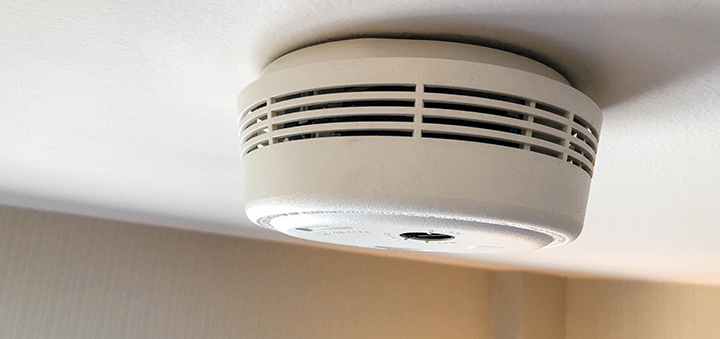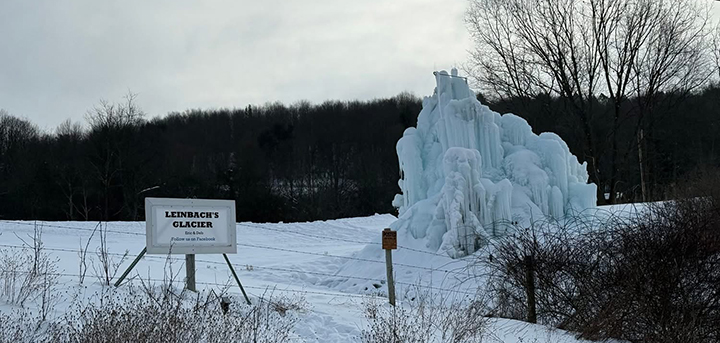New Years' resolution: Check smoke and CO alarms
Ring in the new year by checking smoke and CO alarms to ensure they're in working condition. (Sun file photo)
CHENANGO COUNTY — With a new year just begun, now is the perfect time to ensure smoke alarms and carbon monoxide (CO) detectors are in working condition.
City of Norwich Fire Department Chief Jan Papelino said fires and CO leaks are more common in the winter months due to both the increased use of and strain on home heating systems, as well as a lack of proper maintenance.
To prevent CO leaks and fires, check alarms to make sure batteries are still functioning. Batteries should also be changed on a monthly basis, and the units should be vacuumed at least once per year to clean off any collected dust.
Additionally, make sure smoke alarms are installed on every floor of the home, in every bedroom, outside of bedrooms, in dining rooms, and in common areas. A CO detector should also be installed on every floor.
"A lot of the smoke detectors now are all ten-year batteries, the ones you buy," Papelino explained. "But if you’ve got some that are hardwired, just make sure that you change the batteries in them so if the power goes out, the detector is still going to work as it should."
Papelino said carbon monoxide can be extremely dangerous, as it's impossible to sense.
"It’s odorless, it’s tasteless. You aren't going to sense it," said Papelino. "You can’t smell it, can't taste it. That’s why they call it the silent killer."
However, there are signs of carbon monoxide poisoning, including flu-like symptoms such as headaches, nausea, and lethargy, that can signal a CO leak in the home.
Those that use oil, natural gas, propane, or wood-burning heating appliances should also ensure they receive regular maintenance to prevent potential CO leaks.
"If the flue on them is cracked, it could leak carbon monoxide gas out into the heating system that could potentially go out into the rest of the house," Papelino said. "If you do burn wood, it requires regular maintenance and just cleaning the chimney, the pipes, checking them, making sure the flue inside the chimney doesn’t get cracked."
Papelino also recommends every home have at least one high-quality, refillable fire extinguisher, which can be purchased at Advanced Fire Protection, located at 6142 County Road 32 in Norwich.
"If you’re going to go to the expense of getting an extinguisher, you should get one that’s serviceable, that can be checked on a regular basis, and serviced if you use them," he said. "You can go down to a store and you can buy one of those for $15 or $20. Those aren’t the ones. They’re not going to put out much of a fire and they’re not going to last, and you’re not going to be able to refill them or anything."
"You should have a fire extinguisher handy," he added. "Everyone should have one in their residence."
More information on fire safety and fire prevention can be found on the National Fire Protection Association website, NFPA.org. The site offers educational materials, videos, and interactive games and activities for children to teach them about fire safety.










Comments